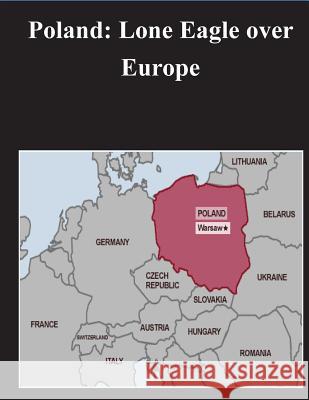Poland: Lone Eagle over Europe » książka
Poland: Lone Eagle over Europe
ISBN-13: 9781500890933 / Angielski / Miękka / 2014 / 60 str.
The fundamental root cause behind the military defeat of Poland in 1939 is not the result of fighting the combined armies of Germany and the Soviet Union. Rather, the failure is attributed to Poland's political hubris of pursuing its strategic imperatives of independence from Russia and regional dominance with primarily military means. This monograph demonstrates how Poland attempted to achieve its strategic imperatives between 1764 and 1939. By using the diplomacy, information, military, and the economy (DIME) methodology as an instrument of analysis, the historical record reveals that Poland was a militaristic state that followed French military theory and doctrine. However, for a brief period in a war with the Russians, a unique Polish theory and doctrine emerged. There is evidence that Poland used operational art as an approach to defeat the Russians in an unexpected fashion. Unfortunately, due to insufficient means to support the military, the Poles endeared themselves to the French during the interwar period and abandoned their emergent operational art in favor of an obsolete and ineffective French tradition. The implications for readers are clear. Strategic imperatives shaped by the political authority of a nation directly impact the development and use of a nation's military. Further, military forces must remain prepared to conduct operations with limited resources within an environment of complex political aims.
Zawartość książki może nie spełniać oczekiwań – reklamacje nie obejmują treści, która mogła nie być redakcyjnie ani merytorycznie opracowana.











